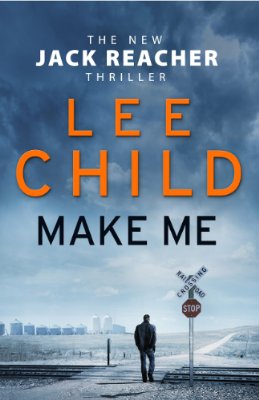I’ve got lots of Hardy Boys adventures. I grabbed this one from the top of the stack.

Everybody knows about the Hardy Boys — the great teenage detectives and sons of the well-known detective Fenton Hardy, from whom “they had inherited his unusual keenness and with that his uncanny ability for solving mysteries.”
This case has to do with a couple of ruffians who have it in for the boys because they inadvertently scraped the ruffians’ boat, who team up with an evil guy who runs a diving/salvage company. Along with their chum Chet, the boys have to drive to Bailey’s Landing to recover important papers that their father idiotically left in his suit jacket that someone borrowed. In Bailey’s Landing they end up having many underwater scrapes as well as a multitude of secret warnings left in their hotel room, all of which are obviously left by the two ruffians or the evil owner of the diving company.
Like Tom Swift, Jr., the Hardy boys have a famous father, a mother who is a cipher (Why does she let her children stay in Bailey’s Landing week after week, where they are threatened with death pretty much every day?), and an amusing chum (Chet is fat! He thinks about food all the time!). Tom Swift, Jr. and the Race to the Moon is bad, but it’s kind of funny in its badness. The Secret Warning, on the other hand, is just bad. There’s no continuity to the plot, no attempt at characterization beyond chums and ruffians, and the requirement that every chapter has to end in some kind of climax leads to a succession of random emergencies: Watch out, Frank — the ship’s anchor has come loose and is heading straight for you! Oh no, where did that octopus come from, and how can we possibly defeat the sea monster!
Growing up I loved these books. I’m kind of disappointed in my childhood self.




 know, rabbits. Forty years later, I still look at a rabbit nibbling on some grass and I think of the word silflay.
know, rabbits. Forty years later, I still look at a rabbit nibbling on some grass and I think of the word silflay.

 when finally revealed, makes little sense. A super-villain with no name, no past, no particular motive for his bottomless evil. Complicated set pieces in which Reacher kills or maims multiple foes due to his understanding of firearms, fighting, human psychology, etc.
when finally revealed, makes little sense. A super-villain with no name, no past, no particular motive for his bottomless evil. Complicated set pieces in which Reacher kills or maims multiple foes due to his understanding of firearms, fighting, human psychology, etc.